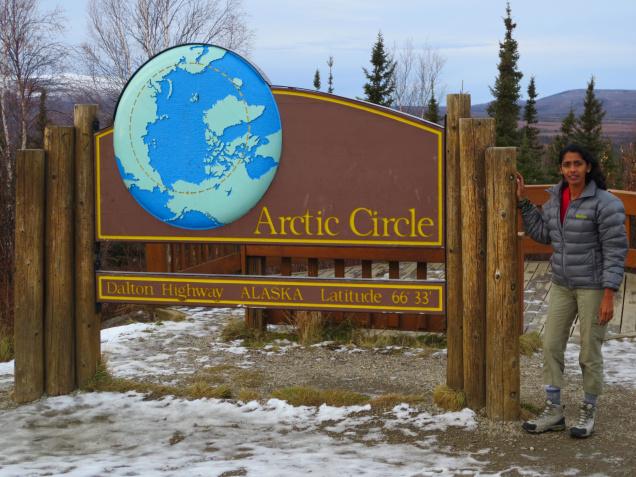BANGALORE, November 29: “If you took one step outside of town, there was nothing beyond but ice. There weren’t any trees; there weren’t any flowers; no rivers, no ponds, no nothing. Wherever you went, there was nothing but ice. Frozen wasteland stretched out as far as the eye could see in every direction.”
This is how one of the lead characters in The Ice Man, a short story by Japanese writer Haruki Murakami, describes the South Pole in Antarctica.
Priya Venkatesh is among the few Bangaloreans fortunate enough to have visited this unique place. But she did not stop at that. She has visited the other end of the globe too — the Arctic Circle. She is among a handful of Indian women to have visited both the Arctic and Antarctic regions, that too in a span of three years.
The 39-year-old Mumbaikar has been living in the city for the past decade with her wildlife educationist husband and mother-in-law. She works in the area of corporate leadership development. She is also an adjunct faculty member at Kirloskar Institute of Advanced Management Studies. When it comes to holidaying, she appears to have ‘high’ aspirations.
Her travelogue boasts of trips to Shitidhar (Beas Kund), Everest Base Camp (Lukla) and Khaliya Top (Munsiyari), among others, apart from the trip to Antarctica in 2011 with famous explorer Robert Swan.
While the trip to Antarctica was well planned, the one to the Arctic was sudden. “Initially, it was just a joke. I was in the U.S. in October this year on work. When a friend casually remarked that I should visit the Arctic, I thought, why not,” she recalls.
Ms. Venkatesh recalled her three-day trip: “I flew to Alaska, which is close to the Arctic region, where I stayed in a quaint little town called Palmer. My friends (all from U.S.) joined me and we drove north to Coldfoot, which is within the Arctic Circle.”
Quiz her on the major differences between the two polar regions, she says, “The weather in Antarctica is hostile. No one resides there except for teams from various countries conducting research. There are also zero terrestrial mammals; only aquatic and bird species such as whales, seals and penguins.
“The Arctic, on the other hand, is tourist-friendly. It is inhabited by native Americans. People are engaged in fishing, hunting and logging. In India, we talk of wildlife conservation but in Alaska, the family who I was staying with bragged about having shot a bear on one day and a moose on another. They feasted on the meat.”
After taking in the “breathtaking scenery” during the three-day to-and-fro drive through Anchorage and Fairbanks to Coldfoot, which included snow, blizzard and the Yukon river, Ms. Venkatesh has a tip for future explorers: “Stock up on food and fuel. Once you are on the way to the Arctic Circle, you will only find nature and wildlife… no food or fuel.”

